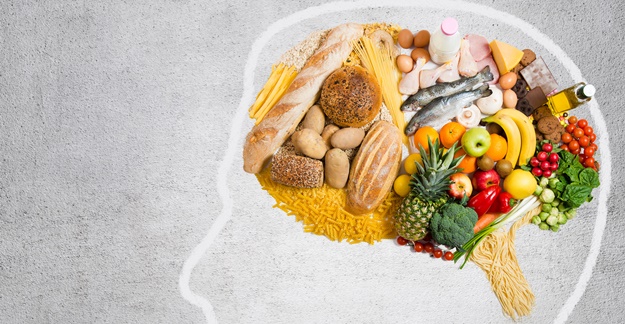The New York Times reports on nutritional psychiatrists who advise people to eat as little processed foods, meat and dairy products as possible in order to ease anxiety and mild depression. Is it possible that how you feel turns on what you eat? For your mental health, nutritional psychiatrists recommend you feed your brain a rainbow of natural foods.
Dr. Drew Ramsey, a nutritional psychiatrist, recommends eating oysters because they have vitamin B12 and omega-3 fatty acids. According to some studies, B12 can keep your brain from shrinking. And, you are at risk for suicide and depression without adequate omega-3 fatty acids. Keep in mind, however, that there is no good evidence to suggest taking B12 or omega-3 fatty acids in supplement form has any health benefit. Moreover, Cochrane.org, the gold star for analyzing the research data, says the evidence is not conclusive that eating omega-3 fatty acids treats depression.
Dr. Ramsey also believes that eating unhealthy foods contributes significantly to depression. Americans eat a lot of calories but do not eat a lot of micronutrients found largely in fruits and vegetables that help our brains to thrive. We need to eat between 12 and 16 ounces of fruit and between 16 and 24 ounces of vegetables every day.
To treat depression, Dr. Ramsey acknowledges that talk therapy can be beneficial, as are prescription drugs in many cases. He and others believe that supplementing those treatments with whole foods can be invaluable. In addition to fruits and vegetables, they recommend fatty fish, whole grains and legumes. Foods high in phytonutrients promote the generation of new brain cells and reduce the risk of harmful inflammation.
There are a few studies to support Dr. Ramsey’s view. One 2016 study of 12,000 Australians found that those who ate more fresh fruits and vegetables were happier and had a greater sense of well-being than those who did not do so. A 2017 study of 422 young adults from the US and New Zealand had similar findings. Canned fruits and vegetables did not deliver the same results.
A 2017 randomized-controlled trial also showed that a 12-week Mediterranean diet improved people’s moods and reduced their anxiety levels. It apparently delivers good gut bacteria. And, good gut bacteria has been found to help process serotonin, a mood elevator.
Dr. Lisa Mosconi, who directs the Women’s Brain Initiative at Weill Cornell in New York City, has found, based on imaging studies, that people who eat Mediterranean diets typically have brains that look younger and are more active metabolically than people who do not. These people may have a lower risk of dementia.
In short, it appears wise to pay attention to what you feed your brain. Your brain needs a lot of nourishment; it consumes more energy than any other organ in your body. Avoiding processed and fried foods is a good beginning. It may improve your mood and make you feel better.
This article originally appeared on JustCareUSA. Republished with permission







